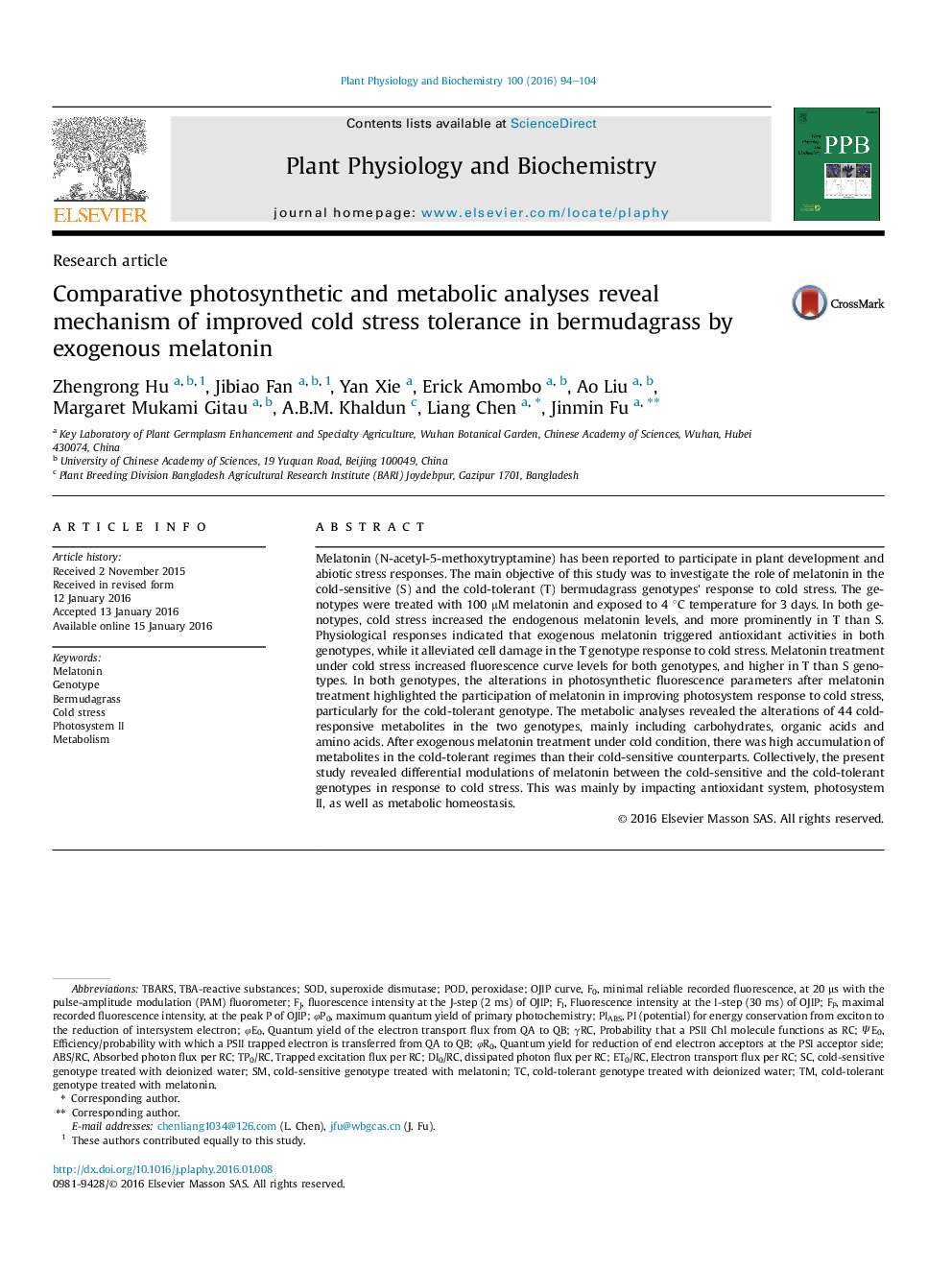| Article ID | Journal | Published Year | Pages | File Type |
|---|---|---|---|---|
| 2015804 | Plant Physiology and Biochemistry | 2016 | 11 Pages |
•Under cold stress, exogenous melatonin improved the antioxidant enzymes activities.•Melatonin treatment improved photosystem Ⅱ performance.•The metabolites were highly accumulated after treatment.
Melatonin (N-acetyl-5-methoxytryptamine) has been reported to participate in plant development and abiotic stress responses. The main objective of this study was to investigate the role of melatonin in the cold-sensitive (S) and the cold-tolerant (T) bermudagrass genotypes' response to cold stress. The genotypes were treated with 100 μM melatonin and exposed to 4 °C temperature for 3 days. In both genotypes, cold stress increased the endogenous melatonin levels, and more prominently in T than S. Physiological responses indicated that exogenous melatonin triggered antioxidant activities in both genotypes, while it alleviated cell damage in the T genotype response to cold stress. Melatonin treatment under cold stress increased fluorescence curve levels for both genotypes, and higher in T than S genotypes. In both genotypes, the alterations in photosynthetic fluorescence parameters after melatonin treatment highlighted the participation of melatonin in improving photosystem response to cold stress, particularly for the cold-tolerant genotype. The metabolic analyses revealed the alterations of 44 cold-responsive metabolites in the two genotypes, mainly including carbohydrates, organic acids and amino acids. After exogenous melatonin treatment under cold condition, there was high accumulation of metabolites in the cold-tolerant regimes than their cold-sensitive counterparts. Collectively, the present study revealed differential modulations of melatonin between the cold-sensitive and the cold-tolerant genotypes in response to cold stress. This was mainly by impacting antioxidant system, photosystem II, as well as metabolic homeostasis.
